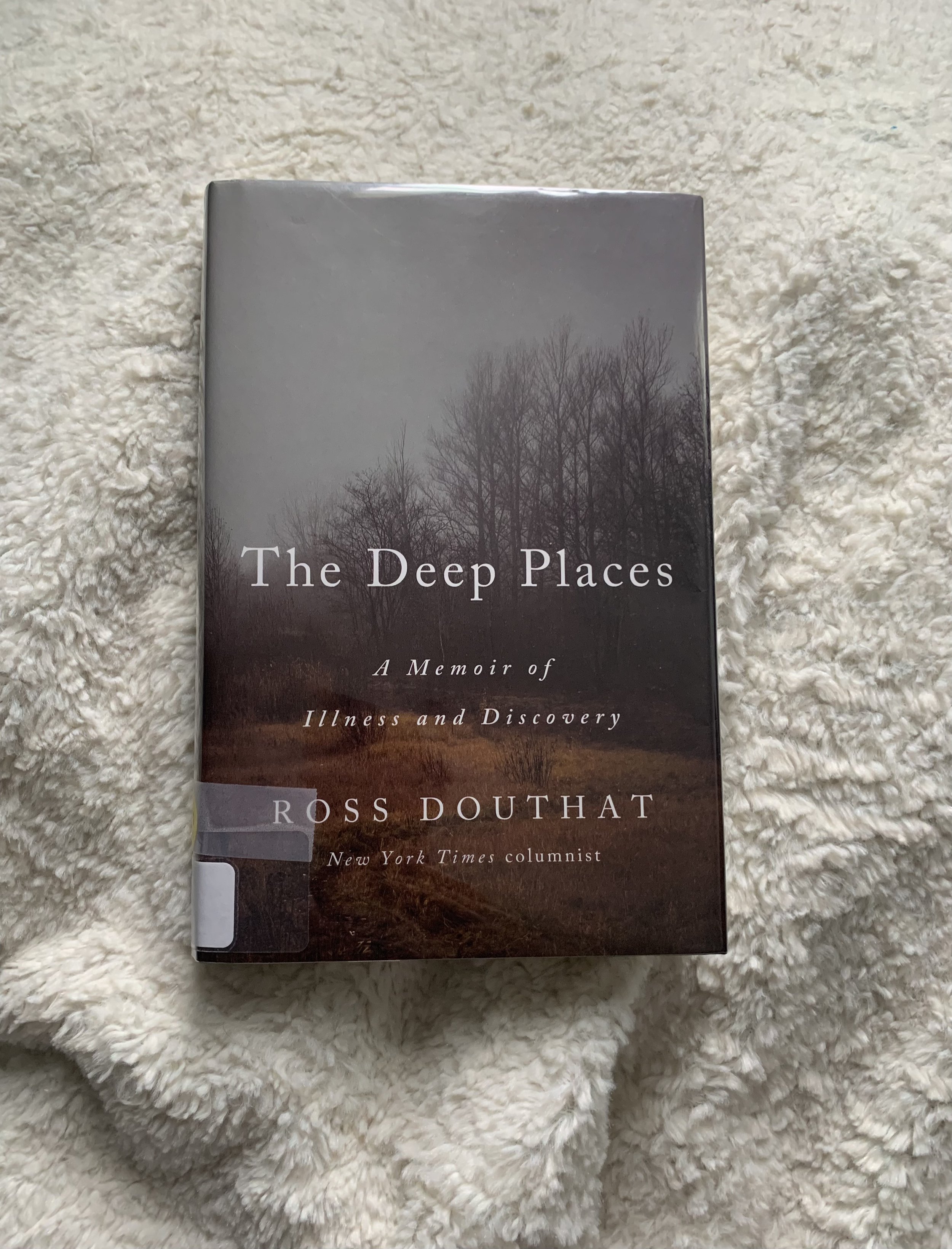“The Deep Places: a Memoir of Illness and Discovery”
I’ve been companioning a chronically ill client for the past year and I’ve seen the devastation that living with a long-standing, degenerative illness can leave in its wake. As Ross Douthat astutely observes in his memoir of living with Lyme Disease, “The Deep Places”, we as a community are comfortable supporting one another in moments of acute crisis; a hurricane, a round of chemo, a stint in rehab, a job loss. Where we fall short of truly supporting one another is when that occurrence slowly morphs into the new reality of every day: “When the crisis simply continues without resolution, when the illness grinds on and on and on — well, then a curtain tends to fall, because there isn’t an obvious way to integrate that kind of struggle into the realm of everyday life.” And so, the chronically ill are left to wade the waters of their suffering largely alone, underserved by the medical establishment we view as healers, and often even alienated from their closest loved ones as their care becomes more burdensome and the goal of returning to wellness moves further out of reach.
Ross Douthat is a long-term opinion columnist for the New York Times and his book reads exactly how you would expect: written with a journalist’s precision, well-researched and articulated, with enough humor and personality to keep you riveted. Douthat describes the crippling suffocation of chronic illness in Gothic imagery, the scene he paints of his six-year devastation with Lyme disease is nightmarish; from disbelieving doctors, escalating symptoms with no “proof”, hundreds of stories from strangers similarly dejected by the medical establishment, the land of late-night googling and self-treatments and experimentations with alternative therapies. But he creates an argument that feels much needed to anyone working with the chronically ill: our modern medical establishment cannot treat diseases it does not believe exists, even if thousands of people a year are suffering from those diseases. What the medical establishment will do, however, is shuffle the chronically ill from specialist to specialist in a fruitless attempt to treat the myriad of symptoms, casting doubt on your own intuition of your health and throwing suspicion to any providers offering alternative therapies.
This book is an excellent read for anyone companioning the chronically ill within our community, those suffering from undiagnosed or un-treatable ailments, anyone curious about Lyme Disease and its polarizing effect on the medical community, and those of us who love a medical memoir.

